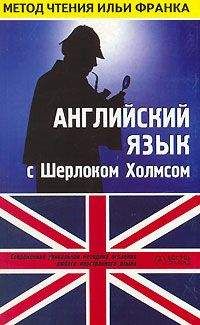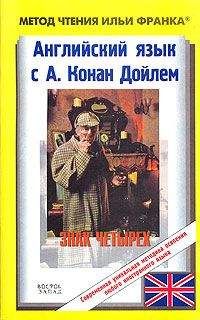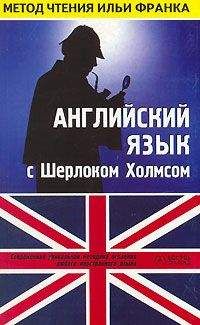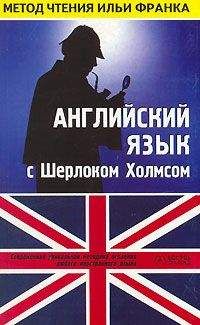piling [ˈpaɪlɪŋ], acknowledges [ǝkˈnɒlɪʤɪz], unique [ju:ˈni:k], occasionally [ǝˈkeɪʒnǝlɪ]
"A proposition which I took the liberty of doubting."
"You did, Doctor, but none the less you must come round to my view, for otherwise I shall keep on piling fact upon fact on you until your reason breaks down under them and acknowledges me to be right. Now, Mr. Jabez Wilson here has been good enough to call upon me this morning, and to begin a narrative which promises to be one of the most singular which I have listened to for some time. You have heard me remark that the strangest and most unique things are very often connected not with the larger but with the smaller crimes, and occasionally, indeed, are those where there is room for doubt whether any positive crime has been committed. As far as I have heard it is impossible for me to say whether the present case is an instance of crime or not, but the course of events is certainly among the most singular that I have ever listened to. Perhaps, Mr. Wilson, you would have the great kindness to recommence your narrative. I ask you not merely because my friend Dr. Watson has not heard the opening part but also because the peculiar nature of the story makes me anxious to have every possible detail from your lips. As a rule, when I have heard some slight indication of the course of events, I am able to guide myself by the thousands of other similar cases which occur to my memory. In the present instance I am forced to admit that the facts are, to the best of my belief, unique."
The portly client puffed out his chest (полный/тучный клиент выпятил свою грудь) with an appearance of some little pride (с видом некоторой гордости) and pulled a dirty and wrinkled newspaper from the inside pocket of his greatcoat (и вытащил грязную и скомканную газету из внутреннего кармана пальто; newspaper: news — новости, paper — бумага). As he glanced down the advertisement column (пока он пробегал глазами рекламную колонку; advertisement — реклама), with his head thrust forward and the paper flattened out upon his knee (с вытянутой вперед головой = шеей и газетой, выровненной на коленях), I took a good look at the man and endeavored (я внимательно разглядывал его: «взял хороший взгляд» и попытался), after the fashion of my companion (подражая моему товарищу; after the fashion of — наподобие, по методу), to read the indications which might be presented by his dress or appearance (прочитать знаки, которые могли быть представлены его одеждой и внешностью).
portly [ˈpɔ:tlɪ], advertisement [ǝdˈvɜ:tɪsmǝnt], column [ˈkɔlǝm], appearance [ǝˈpɪǝrǝns]
The portly client puffed out his chest with an appearance of some little pride and pulled a dirty and wrinkled newspaper from the inside pocket of his greatcoat. As he glanced down the advertisement column, with his head thrust forward and the paper flattened out upon his knee, I took a good look at the man and endeavored, after the fashion of my companion, to read the indications which might be presented by his dress or appearance.
I did not gain very much, however, by my inspection (я не многого добился, однако, с помощью изучения, рассмотрения = мои наблюдения почти не дали результатов). Our visitor bore every mark of being an average commonplace British tradesman (наш посетитель нес все знаки = сразу было видно, что он средний заурядный английский лавочник), obese, pompous, and slow (тучный, напыщенный и медлительный). He wore rather baggy gray shepherd's check trousers (он носил весьма мешковатые серые, с шашечным рисунком брюки; shepherd's check: shepherd — пастух, check — клетка), a not over-clean black frock-coat (не сверхчистый = не слишком опрятный черный сюртук), unbuttoned in the front (не застегнутый спереди), and a drab waistcoat with a heavy brassy Albert chain (и темный жилет с тяжелой медной цепочкой для часов «альберт»; drab — тускло-коричневая ткань), and a square pierced bit of metal dangling down as an ornament (и квадратный просверленный насквозь кусочек металла, свисающего = болтающегося как украшение = как брелок). A frayed top-hat and a faded brown overcoat with a wrinkled velvet collar (поношенный цилиндр и выцветшее коричневое пальто с измятым бархатным воротником) lay upon a chair beside him (лежали на стуле возле него). Altogether (в целом = одним словом), look as I would (сколько бы я его ни рассматривал), there was nothing remarkable about the man (не было ничего примечательного в этом: «насчет» человеке) save his blazing red head (кроме пылающей красной головы = огненно-рыжих волос), and the expression of extreme chagrin and discontent upon his features (и выражения чрезвычайного разочарования и недовольства в его чертах).
average [ˈævǝrɪʤ], obese [ǝuˈbi:s], wrinkled [rɪŋkld], chagrin [ˈʃæɡrɪn]
I did not gain very much, however, by my inspection. Our visitor bore every mark of being an average commonplace British tradesman, obese, pompous, and slow. He wore rather baggy gray shepherd's check trousers, a not over-clean black frock-coat, unbuttoned in the front, and a drab waistcoat with a heavy brassy Albert chain, and a square pierced bit of metal dangling down as an ornament. A frayed top-hat and a faded brown overcoat with a wrinkled velvet collar lay upon a chair beside him. Altogether, look as I would, there was nothing remarkable about the man save his blazing red head, and the expression of extreme chagrin and discontent upon his features.
Sherlock Holmes's quick eye took in my occupation (от проницательного взора Шерлока Холмса не ускользнуло мое занятие; quick eye — хорошее зрение; to take in — понимать, уяснить), and he shook his head with a smile (и он качнул головой с улыбкой) as he noticed my questioning glances (когда заметил мои вопрошающие взгляды). "Beyond the obvious facts (помимо /таких/ очевидных фактов) that he has at some time done manual labour (что он одно время занимался физическим трудом), that he takes snuff (что он нюхает табак), that he is a Freemason (что он масон = вольный каменщик), that he has been in China (что он был в Китае), and that he has done a considerable amount of writing lately (и что он сделал значительное количество написания = ему приходилось много писать в последнее время) I can deduce nothing else (я не могу заключить = сделать вывод более ни о чем)."
Mr. Jabez Wilson started up in his chair (подскочил в кресле), with his forefinger upon the paper (с указательным пальцем на газете = не отрывая указательного пальца от газеты), but his eyes upon my companion (но со своими глазами на моем приятеле = глядя на моего приятеля).
occupation [ˌɔkjuˈpeɪʃn], manual [ˈmænjuǝl], labour [ˈleɪbǝ], amount [ǝˈmaunt]
Sherlock Holmes's quick eye took in my occupation, and he shook his head with a smile as he noticed my questioning glances. "Beyond the obvious facts that he has at some time done manual labour, that he takes snuff, that he is a Freemason, that he has been in China, and that he has done a considerable amount of writing lately, I can deduce nothing else."
Mr. Jabez Wilson started up in his chair, with his forefinger upon the paper, but his eyes upon my companion.
"How, in the name of good-fortune, did you know all that, Mr. Holmes (как, во имя хорошей судьбы = о Боже, откуда вы все это узнали, мистер Холмс)?" he asked. "How did you know, for example, that I did manual labour (откуда вы узнали, например, что я занимался физическим трудом)? It's as true as gospel (это истинно так: «так же верно, как Евангелие»), for I began as a ship's carpenter (/так как/ я начинал как корабельный плотник)."
"Your hands, my dear sir (ваши руки, мой дорогой сэр). Your right hand is quite a size larger than your left (ваша правая рука примерно на размер больше, чем ваша левая). You have worked with it (вы работали ей), and the muscles are more developed (и мускулы /на ней/ сильнее развиты)."
"Well, the snuff, then, and the Freemasonry (ну, /а/ нюханье табака тогда, и масонство)?"
fortune [ˈfɔ:tʃǝn], gospel [ˈɡɔsp(ǝ)l], carpenter [ˈkɑ:pɪntǝ], size [saɪz], muscles [mʌslz], developed [dɪˈvelǝpt]
"How, in the name of good-fortune, did you know all that, Mr. Holmes?" he asked. "How did you know, for example, that I did manual labour? It's as true as gospel, for I began as a ship's carpenter."
"Your hands, my dear sir. Your right hand is quite a size larger than your left. You have worked with it, and the muscles are more developed."
"Well, the snuff, then, and the Freemasonry?"
"I won't insult your intelligence by telling you how I read that (я не оскорблю ваш интеллект, говоря вам, как я прочел = узнал об этом = об этом было нетрудно догадаться), especially as, rather against the strict rules of your order (особенно так как, вопреки строгим правилам вашего ордена), you use an arc-and-compass breastpin (вы используете = носите булавку, запонку с дугой и окружностью /масонский знак/; breast — грудь, pin — заколка, булавка)."
"Ah, of course, I forgot that (ах, ну конечно, я забыл /про/ это). But the writing (но писание = как вы узнали, что мне пришлось много писать)?"
"What else can be indicated (что еще может быть показано = на что еще может указывать) by that right cuff so very shiny for five inches (правый рукав, манжета, /такой/ лоснящийся на пять дюймов), and the left one with the smooth patch near the elbow (и левый рукав с гладким пятном = с лоснящейся тканью возле локтя) where you rest it upon the desk (/в том месте/, где вы клали его на письменный стол)?"
"Well, but China (ну, а Китай)?"
intelligence [ɪnˈtelɪʤǝns], arc [ɑ:k], breastpin [ˈbrestpɪn], cuff [kʌf], smooth [smu:ð], elbow [ˈelbǝu]
"I won't insult your intelligence by telling you how I read that, especially as, rather against the strict rules of your order, you use an arc-and-compass breastpin."
"Ah, of course, I forgot that. But the writing?"
"What else can be indicated by that right cuff so very shiny for five inches, and the left one with the smooth patch near the elbow where you rest it upon the desk?"
"Well, but China?"
"The fish that you have tattooed immediately above your right wrist (рыба, которую вы вытатуировали непосредственно над правым запястьем) could only have been done in China (могла быть сделана только в Китае). I have made a small study of tattoo marks (я провел небольшое исследование /разных типов/ татуировок) and have even contributed to the literature of the subject (и даже внес вклад в литературу по этому предмету; to contribute to — содействовать, помогать). That trick of staining the fishes' scales of a delicate pink is quite peculiar to China (/такой/ обычай окрашивать рыбью чешую в нежно-розовый цвет совершенно специфичен для Китая = свойствен только Китаю). When, in addition, I see a Chinese coin hanging from your watch-chain (когда, помимо всего прочего, я вижу китайскую монету, свисающую с = висящую на вашей цепочке для часов), the matter becomes even more simple (задача становится еще более простой)."
tattooed [ˈtætu:d], wrist [rɪst], literature [ˈlɪtrǝtʃǝ], scales [skeɪlz]





